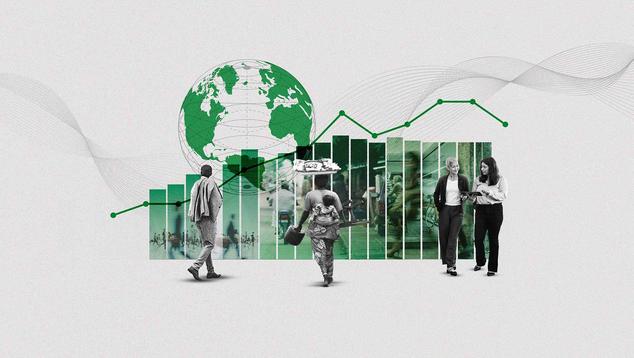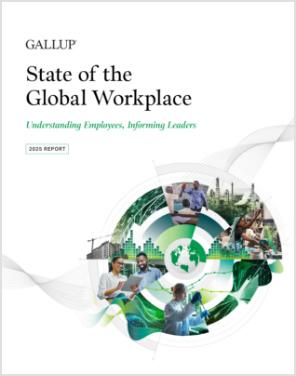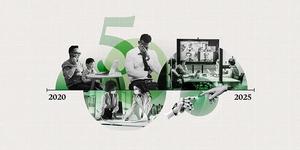Low employee engagement is holding back global worker productivity, according to Gallup’s latest State of the Global Workplace report.
Global employee engagement and employee wellbeing have generally risen over the past decade. But both fell in 2024, which has implications for corporate productivity, innovation and performance.
Here’s what leaders need to know from Gallup’s latest State of the Global Workplace report:
1. Global employee engagement fell by two percentage points in 2024, costing the world economy an estimated $438 billion in lost productivity.
In 2024, the global percentage of engaged employees fell from 23% to 21%. Engagement has fallen only twice in the past 12 years — in 2020 and 2024.
Managers are experiencing the sharpest decline. Manager engagement fell from 30% to 27%, while individual contributor engagement remained flat at 18%. Engagement among managers under the age of 35 fell by five percentage points; female manager engagement dropped by seven points.
In recent years, managers have been squeezed between new executive priorities and employee expectations. Many organizations experienced workforce changes after the pandemic, characterized by high turnover, rapid expansions and layoffs in some sectors. Disrupted supply chains and the end of stimulus programs have shrunk budgets.
At the same time, employees have new demands for flexibility and remote work based on their pandemic experiences, but some companies have rolled this flexibility back. All of this eventually takes a toll on the world’s managers, who are struggling to make it all work.
Gallup research suggests leaders should rethink managerial roles entirely. By redesigning role responsibilities around performance coaching, organizations can improve team performance for the new workplace, not the old one.
2. Global employee wellbeing fell for a second consecutive year, following several years of steady gains.
After five years of steady improvement, global employee life evaluations fell in 2023 and again in 2024, declining to 33%. Again, managers experienced the largest decrease in the percentage who rate their lives positively enough to be considered thriving, while individual contributors saw their life evaluations improve slightly.
Many factors influence how people feel about their life overall, including satisfaction with their income and the cost of living. Nevertheless, many employees spend most of their lives working, and their work experiences influence their life evaluations. Half of employees who are engaged at work are thriving in life overall, compared with only a third of employees who are not engaged.
3. If the world’s workplace was fully engaged, Gallup estimates that $9.6 trillion in productivity could be added to the global economy, the equivalent of 9% in global GDP.
The world’s workplace is trending in the wrong direction, but science-based management practices show a promising way forward.
Gallup’s employee engagement meta-analysis finds that when organizations build their growth strategy around great management, the result is better customer service and higher productivity, sales and profits. These outcomes are reproducible across industries and cultures.
The best organizations Gallup has studied put manager training and development at the center of their strategy. Even rudimentary training shows benefits to engagement. However, managers who receive best-practice training have seen their own engagement and their team’s engagement improve substantially. Management performance metrics improved by 20% to 28%.
The future of global productivity depends on an engaged and thriving workforce. Gallup estimates that improving employee engagement through science-based management could unlock trillions in economic potential.





